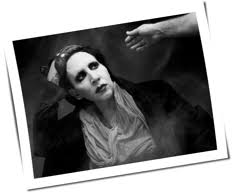The Complex Legacy of Marilyn Manson

Introduction
Marilyn Manson, born Brian Hugh Warner, is a name synonymous with shock rock and controversy. His influence on the music scene and pop culture throughout the 1990s and early 2000s is unrivalled, making him a prominent figure worth discussing. Understanding his impact, as well as the controversies that have surrounded him, is critical in today’s cultural landscape.
Emergence of Marilyn Manson
Manson first gained prominence in the early 1990s with the launch of his band, Marilyn Manson & the Spooky Kids, which later simply became Marilyn Manson. The band’s theatrical performances and Manson’s provocative style resonated deeply with the disillusioned youth of the era, culminating in popular albums like ‘Antichrist Superstar’ (1996) and ‘Mechanical Animals’ (1998). His music often challenged societal norms, addressing themes of religion, sexuality, and personal angst.
Controversies and Legal Issues
Despite— or perhaps due to— his success, Manson has consistently been embroiled in controversies. In particular, his notorious stage persona and lyrics led to considerable backlash from conservative groups and media. Events such as the Columbine High School shooting in 1999 saw Manson wrongly accused of influencing the perpetrators, a claim he vehemently denied. As the years progressed, the controversies surrounding him only intensified, culminating in serious accusations during the #MeToo movement.
In 2021, several women, including actress Evan Rachel Wood, accused Manson of abuse, leading to legal battles and a significant decline in his public presence. The accusations ranged from psychological manipulation to physical violence and sparked debates regarding accountability in the entertainment industry.
The Current Situation and Future Outlook
In the wake of these allegations, Manson’s career has faced significant repercussions, from losing partnerships and endorsements to being dropped by his record label. However, the complexities of his legacy continue to unfold. Discussions surrounding the accountability of artists in light of personal conduct and the impact of their work on society are more relevant than ever.
As of now, Manson maintains his innocence and is in the process of legal proceedings to confront the allegations. His future in the music industry remains uncertain, raising questions on whether he can reclaim his status in a post-allegation world.
Conclusion
The story of Marilyn Manson is one of talent, controversy, and the evolving standards of accountability. His contribution to music and culture cannot be overlooked, yet the allegations against him force a reevaluation of his legacy. As society navigates the intersections of art and personal conduct, Manson’s trajectory will serve as a critical case study in the dynamics of fame and accountability.








